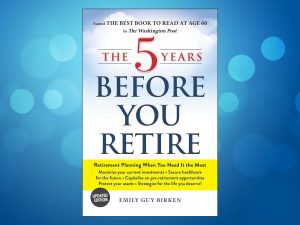For the most part, agencies expect you to trust their expertise in finding the right person for the job. It can be a little off-putting when a stranger shows up at the door for her first day of work when you and your relative have never met him or her before. (Yes, please specify if you have a gender preference or you might have a surprise.)
However, with careful matching on the agencies part it usually works out, so my advice is to find a reputable agency and go with the flow. When you call ask these basic questions to get the conversation going with the placement consultant/case manager on the other end of the telephone.
• How long has this company been serving the community?
• How are employees selected and trained?
• Are there written policies and procedures for staff?
• Does the company carry malpractice insurance coverage?
• Will the company provide literature explaining its services, eligibility requirements?
• Is there a “patient bill of rights”?
• Will you be charged hourly or weekly? And what is the fee?
• Is there a supervisor to oversee the quality of care that patients are receiving at home?
• What are the provider’s emergency procedures?
• Is there coverage 24 hours a day, 7 days a week?
• Are nurses and therapists able to evaluate in consultation with doctor’s/specialists?
• Can they ensure patient confidentiality?
• Do you have references where cases are similar to ours?
Use these questions to get to know the agency, understand their services and determine whether or not their philosophies and personnel will be a good fit for your family.
Questions: Is the agency bonded and insured?
Answer: Agencies providing homecare should be insured against any losses or liabilities as a result of their employees’ actions.
Questions: How are nursing and care staff chosen?
Answers: The agency will verify the education and skills of their staff as well as screen them for physical health. Top agencies will provide ongoing training so that staff can upgrade their skills.
Questions: Will an in-home assessment be completed?
Answer: Some agencies offer a complimentary in-home assessment by a registered nurse. This assessment is a highly valuable opportunity for you to evaluate their professionalism, and ability to develop a care plan and schedule to meet the needs of the family.
Questions: What are the costs?
Answer: This will vary depending upon the type of care you need. Most personal care services are paid by the hour, while professional services are paid by the visit. It is important to clearly understand the distinction and any premiums you are paying for.
Question: Will the agency send the same person all the time?
Answer: Consistency and continuity of staff are key indicators of quality service. Although it’s ideal, it is not always possible to have the same agency staff member providing care each time. Good agencies will monitor and minimize the number of different staff involved in providing care.
Question: Are any of these services covered?
Answer: Provincial government funding is available if you qualify. In addition, some private plans do cover home care service. Most agencies will coordinate and optimize their service by working with the funders.
Special Considerations
• Heavy Lifting: If the older person needs to be transferred from a wheelchair to a commode or lifted into bed, make sure the aide knows how to do this safely. A lifting device may be requested as many agencies and individuals follow a zero-lift policy to protect their backs.
• Full Time Plus: Don’t try to hire someone on a 7-day-a-week basis. Not only is it against the law but also no one can manage to remain effective. Know that aids who live in or sleep over cannot be expected to be on call 24-hours a day. If your relative needs frequent help or nighttime supervision, consider hiring a second person or have family members fill in.
• Ensuring personal security: However trustworthy you feel your caregiver might be, it is essential to protect your parent’s assets and precious items. Put private papers and valuables in a safety deposit box or safe and put a few proactive procedures in place such as:
–Check the phone bill for unauthorized long-distance or 1-900 calls
– Set a limit on cheques and credit cards for household accounts if money must be handled at all
– Don’t leave cash around the house and insist on receipts for all purchases
– Have mail sent to your home or a safety deposit box where you can pick it up.













